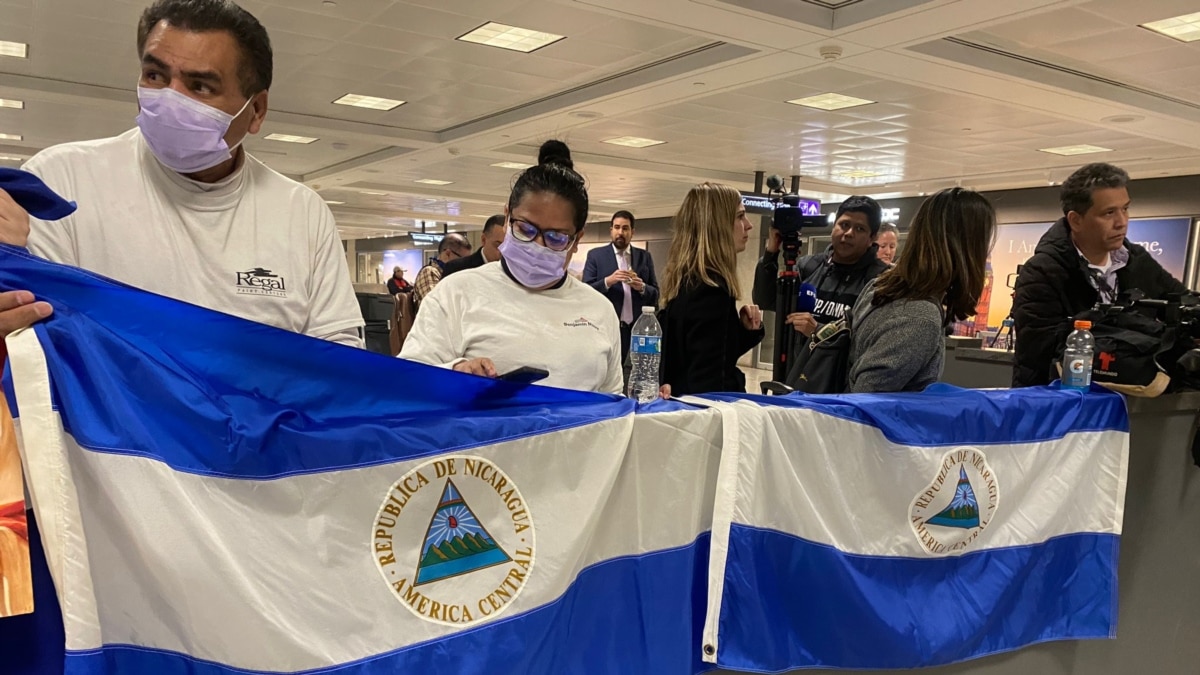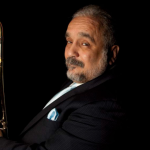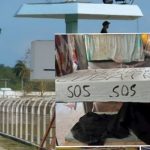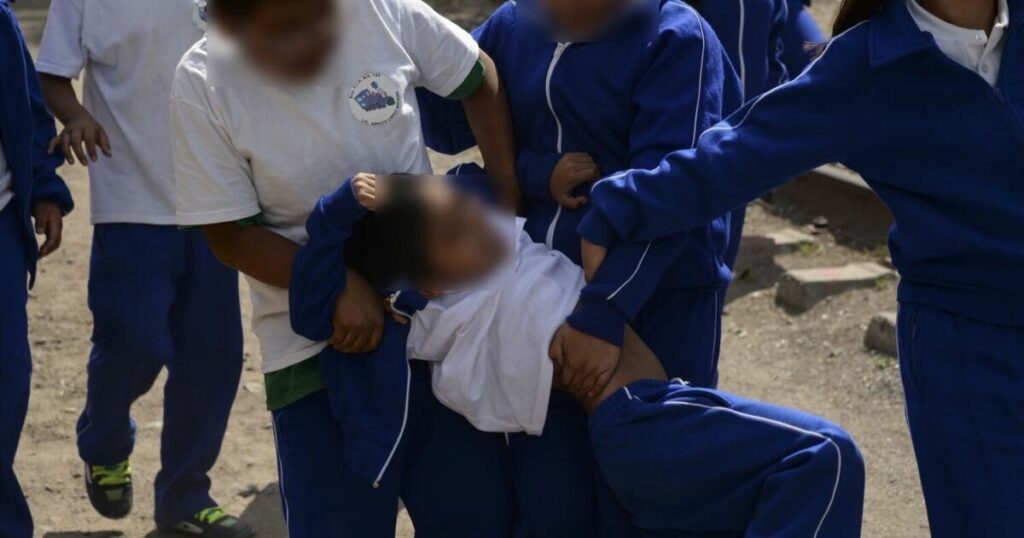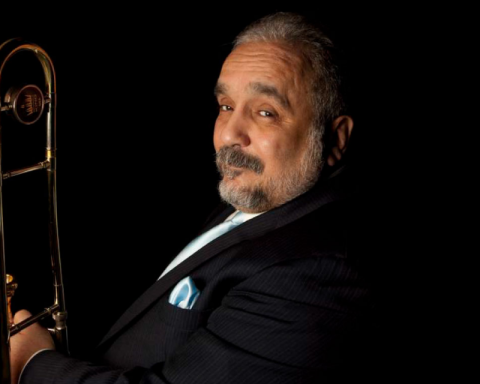The US Department of State, in charge of “Operation Nicaragua” under which 222 Nicaraguan political prisoners were released on February 9, made available a resource guide in order to address frequent questions among the group of people who are still trying to adapt after their arrival in the country.
The information includes contact points for non-profit organizations across the country that have made available medical, legal and economic benefits to address the needs of those released.
“We thank the many individuals and organizations that have mobilized in their support,” Brian Nichols, Under Secretary of State for Western Hemisphere Affairs, said on social media.
TO his arrival in Washingtonthe former political prisoners were granted a humanitarian parole that allows them to remain legally in the country for two years and obtain a work permit, which in the case of these Nicaraguans, was ordered to be issued quickly.
This humanitarian parole is the same program currently available for Venezuelans, Haitians, Cubans and Nicaraguansunder which the US government will accept the entry of up to 30,000 people per month who have a sponsor in the US.
The State clarified that this information applies specifically to the group of 222 former political prisoners “and may not apply to other people entering the US on humanitarian parole.”
These are the questions answered by the federal agency:
Do you need care urgently?
The available resources detailed by State include calling the National Emergency Telephone Service depending on the situation you are experiencing. These are:
Emergency medical assistance: 911
National Suicide and Crisis Prevention Helpline :988
National Domestic Violence Hotline: 800-799-7233; 800-787-3224
National Sexual Assault Help Desk of the National Network against Rape, Abuse and Incest: 800-656-4673
National Center for Victims of Crime: 800-394-2255, 800-211-7996
National Human Trafficking Assistance Service: 888-373-7888, Text: 233733.
If you belong to the group of 222 released, did you automatically get a humanitarian parole?
Yes, all former Nicaraguan political prisoners were granted a humanitarian permit that allows them to remain in the US for two years. The Department of State explained that to maintain said permit you will have to meet the following medical and legal conditions:
Within 14 days after arrival in the US they were required to receive vaccinations against measles, polio and COVID-19.
Within 90 days after the humanitarian parole has been granted, a tuberculosis screening must be done.
You must report all address changes to USCIS within 10 days of moving, and no later than 30 days after each address change.
What to do if you do not meet these requirements?
Nicaraguan beneficiaries will be assigned a case manager from the Center for Victims of Torture (CVT). These individuals will connect releaseees with relevant resource sources at the state and local level, including places to obtain immunizations and tuberculosis exams and treatment services.
Pharmacies offer a wide variety of vaccines, including for COVID-19, measles, and polio. Vaccines against COVID-19 are free.
If you cannot afford vaccination, try contacting your local health department or the Community Health Center closest to your state, they provide low-cost medical and dental care, vision care, and pharmacy services. Among the services they offer include immunizations, dental cleaning, gynecological care, prenatal and perinatal services, routine check-ups and preventive studies.
What is a case manager and what is their role?
The CTV will provide case management services to former political prisoners who have consented to have their information transmitted to the Center. “All parolees who have consented to receive services should already have been assigned to an individual case manager,” Estado said.
The case manager will provide you with individualized services, beginning with a comprehensive needs assessment, which will look at services related to medical, mental health, legal, housing, transportation, educational, employment, and community support needs.
If the CVT has not contacted you yet, please email [email protected] so they can follow up.
“The purpose of these services is to ensure a stable connection with local care and act as a link from arrival to integration into the destination community,” the agency added.
Will you be able to apply for asylum?
People who arrive in the US with a parole can apply for asylum and must apply within one year of arrival. To do so, you must submit the Form I-598 before the Immigration and Citizenship Service (USCIS), which has no processing cost.
State urged former political prisoners who decide to request asylum to notify the address [email protected] in order “so that we can contact USCIS about your application.”
Will you have access to a work permit?
The Nicaraguans released in February have access to a work permit whose cost was eliminated and its processing carried out in an accelerated manner.
A little over a month after their arrival in the US, some beneficiaries have already obtained a work permit, while others are coordinating fingerprint appointments to continue the process.
Kevin Solis, 23, received his work permit on March 16. The young man, who was in his last year of law school when he was jailed in Nicaragua, told VOA that his current priority is to “seek study options” in San Francisco, where he is staying after his arrival.
Others, like Samantha Jirón, one of the youngest released, waits in the next few days for her appointment to put her fingerprints in order to receive her work permit shortly after. Her aspiration, she told VOA, is to continue her studies in journalism and learn English to navigate life in the US.
If you have not yet applied for your work permit, you must submit it by means of a printed copy of Form I-765 with the NICPAR code in pen in the upper right corner of the form. This should be sent with a copy of your humanitarian parole to:
USCIS
ATTN: NICPAR
10 Application Way
Montclair, CA 91763-1350
If USCIS approves your Form I-765, USCIS will mail your Employment Authorization Document to the address you provided on your application.
Would you like to bring your family to the US with you?
The released Nicaraguans will be able to serve as sponsors for their relatives, under the US government program that allows the arrival of direct relatives for a period of stay for humanitarian reasons of up to two years.
People in the US will have to submit the Form I-134 before USCIS electronically to start the process. Filling out this document does not entail costs for the applicant.
This form must demonstrate sufficient economic resources to receive, maintain, and support the proposed beneficiary for the duration of the beneficiary’s parole period.
Beneficiaries or direct family members must be outside the US, be Nicaraguan citizens, have an unexpired passport, travel with a parent or legal guardian if under 18 years of age, and meet vaccination requirements.
Do you need financial help to prove that you can sponsor your family members?
“Organizations, companies and other entities can play a crucial role in providing sponsorship to beneficiaries who arrive under the program. Although an individual sponsor is required to file and sign Form I-134A, they may do so in association with, or on behalf of, an organization, business, or other entity that will provide some or all of the necessary financial support to the beneficiary.” exposed State.
Some of the organizations available are Welcome.us and Community Sponsorhip Hub.
Does your family member not have a valid passport that has not expired?
“If your family member has unsuccessfully applied to Nicaraguan officials for a passport or fears doing so, they may be eligible for other options, such as humanitarian or significant public benefit parole by presenting a Form I-131”, explained State.
This form costs $575. However, individuals may be eligible to have this fee waived by presenting the Form I-912 known as a Fee Waiver Request.
Do you want to apply for citizenship in another country?
Upon leaving Nicaragua, the government of Daniel Ortega removed the citizenship of the 222 former political prisoners who arrived in the US. Expatriates do not have the right to pensions, nor to their professional titles, nor to remain in the civil registry of the country.
Chile, Colombia, Mexico, Argentina and Spain have offered nationality to these Nicaraguans.
The US government pointed out that said benefits must be coordinated directly with the embassies of those countries in the place where it is located.
Connect with the Voice of America! Subscribe to our channel Youtube and activate notifications, or follow us on social networks: Facebook, Twitter and instagram.
